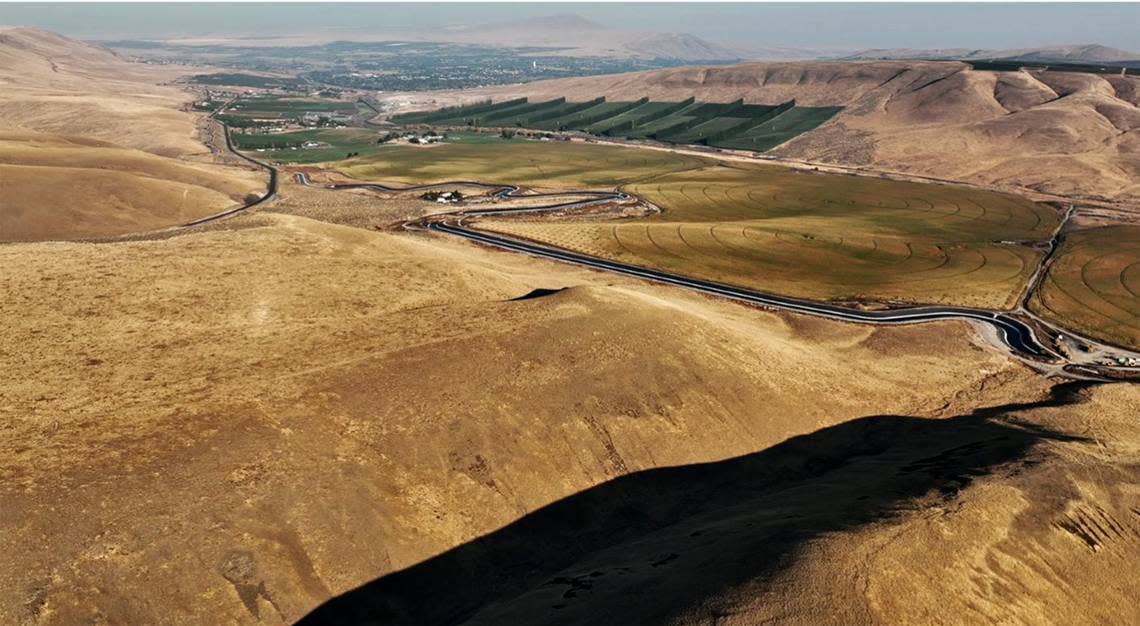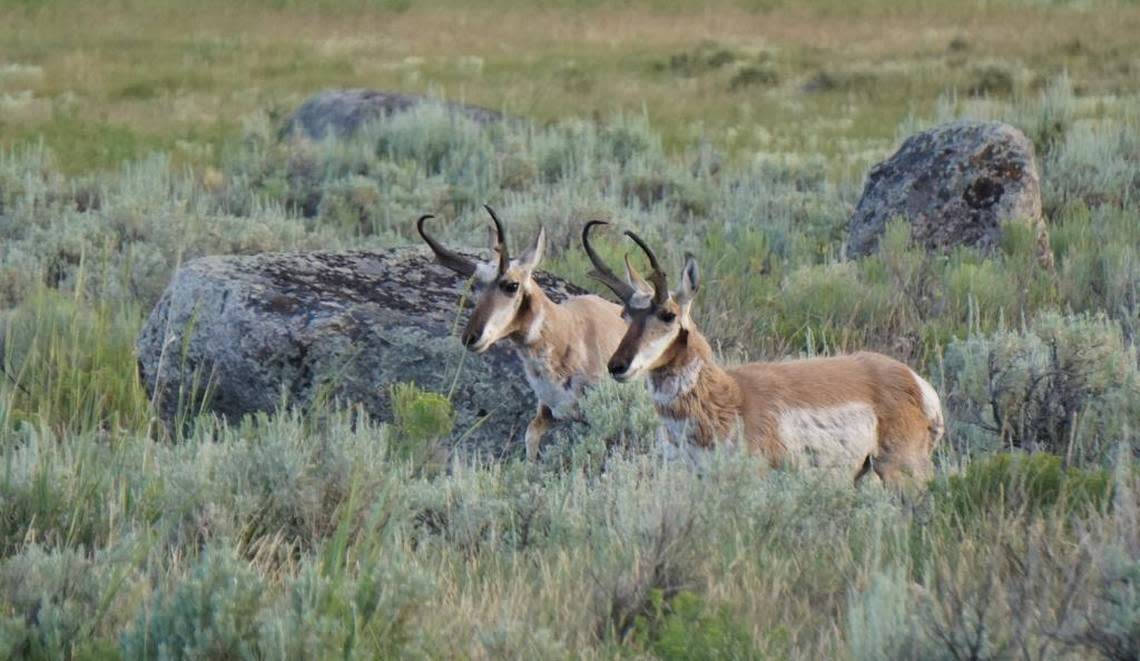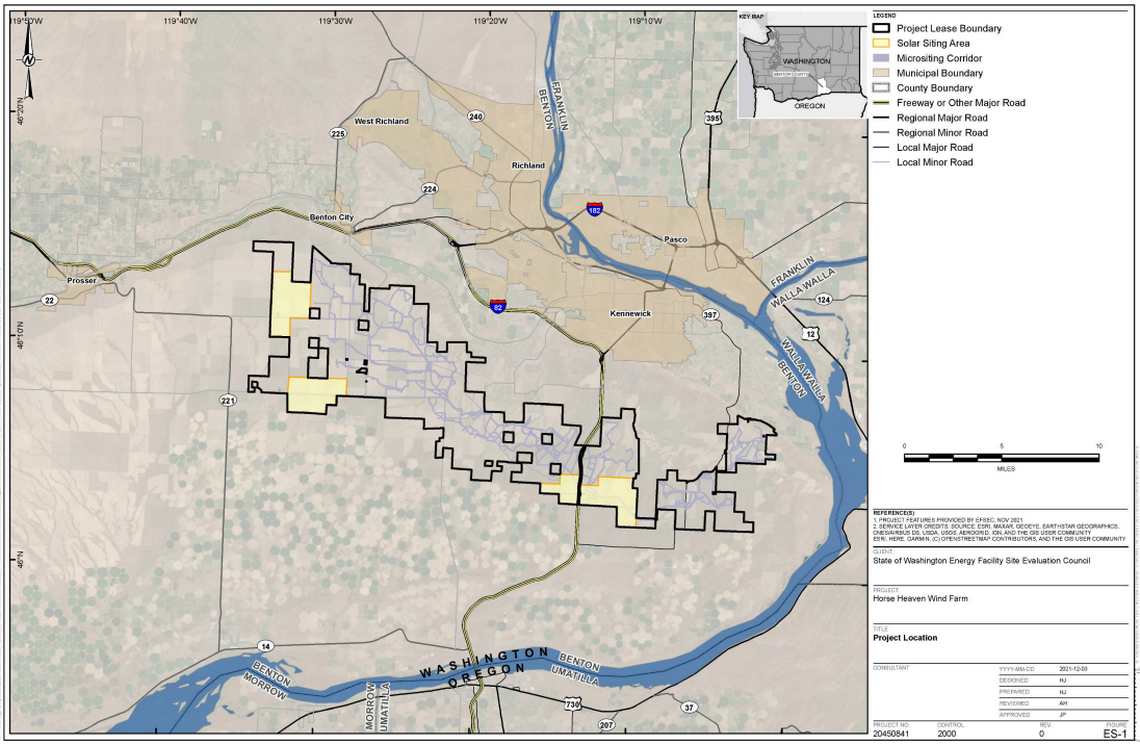Yakamas worry huge proposed Tri-Cities wind farm will harm antelope and the land
The proposed Horse Heaven wind farm just south of the Tri-Cities would harm traditional cultural properties, says the Yakama Nation.
It has filed for status as an intervener in legal proceedings as the state of Washington considers whether to allow the Horse Heaven Clean Energy Center along the ridgeline of the Horse Heaven Hills.
The Yakama Nation is asking to participate in adjudication to resolve contested issues of the proposal for the wind, solar and battery storage project proposed by Scout Clean Energy before a recommendation is made to Washington Gov. Jay Inslee.
The governor will make the decision on whether to allow the development.
Scout Energy is proposing up to 244 wind turbines that would be 500 feet tall or an alternate plan with fewer, but taller turbines. Then there would be 150 turbines with blades extending about 670 feet high, which is taller than the Seattle Space Needle.
The project site would cover 112 square miles stretching from south of Finley to south of Benton City, although the developed area of the project would cover only about 10 square miles.

The Yakama Nation, in its petition before the state Energy Facility Site Evaluation Council, said that the proposed project lies within Yakama Nation’s Treaty Territory, where the tribe maintains rights not ceded by the Treaty of 1855.
The tribe’s rights including protecting and caring for its cultural resources and hunting and gathering roots and berries on open land.
Fencing could restrict the movement of wildlife, and wildlife also could be killed by vehicle crashes and turbine strikes, the Yakamas said it its petition to intervene.
Of particular concern are pronghorn antelope, which the Yakama Nation reintroduced onto its reservation in Central Washington in 2011.
The antelope have since spread, including through the Horse Heaven Hills, according to comments received by EFSEC on its draft environmental study.
Washington state is at the northwest end of the animal’s native range, but their population declined significantly in the state in the 1800s and they became locally extinct.

The clean energy development also could degrade habitat and contribute to the isolation of some plant species, the Yakama Nation said.
It also is concerned about the view of the Horse Heaven Hills, saying the turbines will dominate the landscape. The project also would reduce access to recreational land, it said.
If accepted as an intervener in the adjudication proceedings, the Yakama Nation would be allowed to provide evidence and arguments and cross-examine witnesses.

Tri-Cities CARES, which opposes the Horse Heaven wind farm, and Benton County also have applied to intervene in adjudication proceedings.
Benton County has told EFSEC that mitigation measures in the draft environmental study are inadequate for the expected impacts to agricultural land.
Scout Clean Energy and the state counsel for environment are parties to the adjudication.
The counsel for environment through the Washington state Office of Attorney General represents the public and its interests to preserve the environment and produce minimal adverse effects.
Administrative law judge Adam Torem expects to hold a prehearing conference March 10 to develop a list of disputed issues to consider during adjudication.
